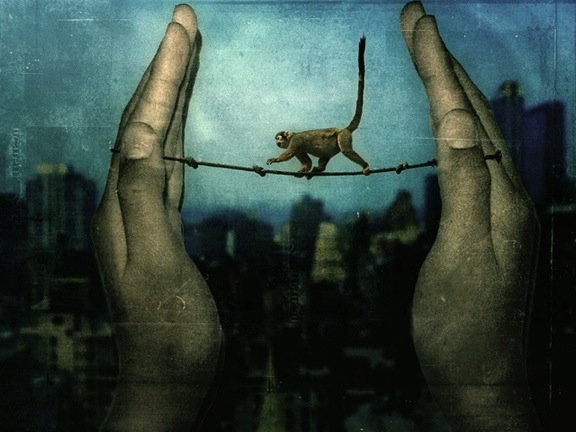
Digital Pedagogy, More than Education
Two dictionary searches later – I hadn’t spelled pedagogy correctly at first – I discover that “science of education” has a word … pedagogy. I click back to the Hybrid Pedagogy site and begin to browse its many developing approaches. I’m impressed when I discover Digital Pedagogy and in particular I find the idea of “student-created vlogs” interesting because they allow a student to “focus on reflection, collaboration, and community building.” Now, the focus of the authors approach to this style of learning is about re-approaching the learning process and the context of texts but what if they were allowed to reflect on their experiences as a whole?
Generation after generation has loathed education based on individual performance and testing. It’s not the way the world turns. You will rarely find that experience outside of academic institutions and as we’ve learned – through Gee in particular – cooperative learning and reflection as part of the scientific process is integral to all disciplines of people despite their education levels, ages or walks of life. By allowing individuals to document their experience people build a community through sharing their perspectives.
Try and remember any revelations you have had in your lifetime … do they follow a night of drinking? Maybe. Is it when you’re comatose in front of a TV screen? No. they come to us after focused reflection! Why wouldn’t the same be true about learning? I know this seems like an alien aspect of Western learning processes but I think it must be one of the most important parts to an individuals embodied experience. I do it outside of education all of the time. I say “goose-fraba,” Zen out for a bit and then reflect on what worked, what didn’t and how to get better. At the very least, how we reflect on our learning process would be something like a coping experience to go along with the terrible one you may be having in the class room;) I digress, to ignore the personal aspect of the learning process – how a student feels about that process – we ignore the impact those learning experiences are having.
I have also considered the potential of Vlogs outside of the classroom as “significant and practical learning tools.” Imagine a world where large media tycoons don’t control the news but rather the news can be delivered to you on a micro-cultural level. You’d get a on the ground real world perspective and points of view. Isn’t that a potentially perfect harmonization of learned practices in school and the real world environment? We’ve learned that literacy isn’t so narrowly defined as it once was. We are entering an age of digital literacy/education and if the point of education is to equip us to engage our worlds better, then what better vehicle to learn good education processes through?
http://www.hybridpedagogy.com/Journal/files/Vlogging_Composition.html

 Website:
Website: